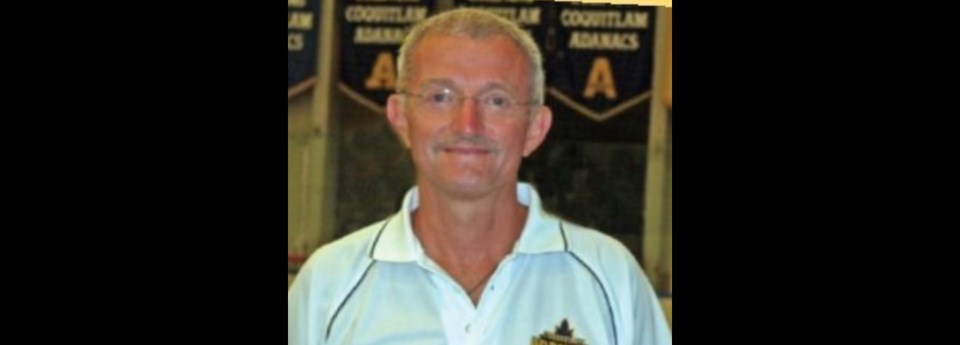Coquitlam’s lacrosse community is remembering one of its legends.
Donald “Doc” Hedges never played the sport at a high level. But his 25 years as the team doctor for the Coquitlam Adanacs ensured many players could keep on playing as he guided them through injuries and rehabilitation.
He also served as the team’s president and director for several years.
Hedges passed away at the Belvedere Care Centre in Coquitlam after a long illness. He was 72 years old.
Hedges’ contributions to lacrosse stretched far beyond the Adanacs. He worked with the Vancouver Ravens and Stealth professional teams, Canada’s national box lacrosse program and the men’s field lacrosse program at Simon Fraser University, where he was its academic advisor as well as the team doctor. For 21 years, he taught a course in sports medicine at the school.
Hedges also helped develop the sport in Costa Rica, travelling there with players and equipment. In 2021, the country became a full member of World Lacrosse, the international governing federation for men's and women's lacrosse.
In 2011, he was inducted into the builders category at the Canadian Lacrosse Hall of Fame and in 2018 he was honoured by the Coquitlam Sports Hall of Fame.
In a social media post, the Adanacs said Hedges had “an everlasting impact on many. Doc will be missed immensely.”
The Western Lacrosse Association called him “the lacrosse player’s doctor.”
Fellow lacrosse hall of famer Casey Cook said Hedges’ “commitment and professional expertise transcended sport or affiliation, available to anyone who needed or sought his help.”
Indeed, Hedges’ gift for healing sprains and strains wasn’t confined by the boards at the lacrosse arena. He also worked with the Vancouver Whitecaps and 86ers soccer teams, along with the Burnaby Lake rugby program and the New Westminster Hyacks high school football team.
But while Hedges’ public practice helped athletes overcome physical injuries, his private medical practice in New Westminster specialized in helping patients overcome addiction. His expertise was often called upon by the Supreme Court of British Columbia, the BC Court of Appeals, the Human Rights Tribunal and in labour relations cases. In 2009, he was one of six doctors who co-authored a policy paper for the B.C. Medical Association on improving addiction care in the province.
But an effort in 2008 to speak at a hearing of the House of Commons health committee looking at safe injection sites was derailed by demonstrators who objected to his opposition to harm reduction methods of treating addiction.
“Needles and a place to shoot up is not medical treatment for addiction any more than giving young people a place to smoke cigarettes is medical treatment for lung cancer,” Hedges told the Globe and Mail newspaper.



